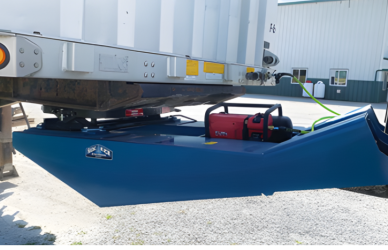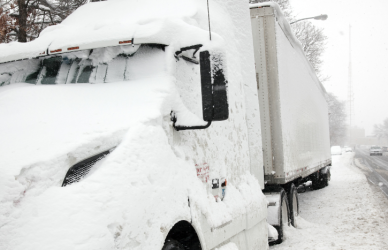Truck drivers keep America moving, but when it comes to working with dispatch, many feel there’s a serious disconnect. We asked our Facebook community of truckers: What’s one thing you wish dispatch would better understand about life on the road? Their responses highlight the daily challenges drivers face and the ways dispatch could make the job smoother.
Experience Matters
Many drivers believe dispatchers should have firsthand trucking experience before stepping into the role. Steven Kirby put it simply: “Every dispatcher and broker needs to have one year of over-the-road (OTR) coast-to-coast experience.” Others, like Randy Witmer, pointed out that some companies used to require dispatchers to spend time on the road to gain a real understanding of a driver’s day-to-day challenges. A little experience behind the wheel could go a long way in bridging the gap.
Time on the Road Isn’t Just Driving
Drivers are constantly racing against the clock, and unrealistic expectations from dispatch can make it worse. Scott Jones explained that “sitting around for hours waiting to load or unload leaves you just as worn out as running down the road.” Jareth Johnson added that activities like tarping, waiting for a service truck, or sitting in traffic all count as “on duty” time, meaning it’s not just about the miles driven—it’s about the hours worked.
Trip Planning Requires More Than 10 Minutes’ Notice
A common frustration among drivers is last-minute load assignments that make trip planning nearly impossible. Destany Taylor shared, “If you want me to be able to trip plan my backhaul that’s two hours away from my last destination, you need to give it to me more than ten minutes before it’s due for pick up.” Poor planning on dispatch’s end often results in unnecessary stress for drivers.
Traffic, Weather, and Reality Exist
Truckers don’t operate in a perfect world of open highways and smooth sailing. Donald Pearrell and Tom Kalbacher emphasized that dispatchers often fail to consider weather conditions and traffic delays when setting unrealistic delivery schedules. Denis Allaire pointed out that many timelines seem to be based on Google Maps rather than real-world conditions, leading to impossible expectations.
Getting Home Shouldn’t Be a Battle
For many truckers, home time is sacred, but dispatch sometimes seems to forget that. Rob Duncan shared his frustration: “When it’s time to go home, send me home. Don’t route me up to New York three days before I’m supposed to be home in Nevada.” Drivers work long hours away from their families—honoring their home time commitments should be a priority.
Better Directions Prevent Headaches
Incorrect delivery addresses and poor communication cause major issues for drivers. Jason Lawrence called out a frequent problem: “Stop giving the office address for the delivery address. When the actual delivery location is around the block at another street address, it wastes time and fuel.” Lana Archer added that failing to relay important receiver notes—such as which entrances to avoid—leads to unnecessary delays and preventable mistakes.
Respect the Truck and the Laws of Physics
Some dispatchers underestimate the reality of operating a semi-truck. James Mitchell summed it up by saying, “They never understand the laws of physics.” Leon Rawls joked, “The truck is NOT the USS Enterprise!”—a reminder that trucks can’t warp-speed through traffic or squeeze into tight spots like smaller vehicles.
Drivers Deserve Fairness
At the end of the day, truckers just want fair treatment. Jaime Saravia kept it simple: “Just give us work and be fair.” Whether it’s avoiding favoritism in load assignments, respecting home time, or setting reasonable expectations, a little fairness and understanding from dispatch can go a long way in improving driver-dispatch relationships.
The Bottom Line
Truckers aren’t asking for much—just for dispatch to truly understand the job. A little firsthand experience, better communication, and realistic planning could make life on the road easier for everyone. After all, without truck drivers, the freight doesn’t move, and the industry doesn’t function.
Would you add anything to this list? Share your thoughts and connect with fellow drivers in our Facebook community!











